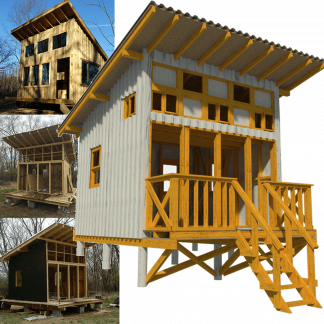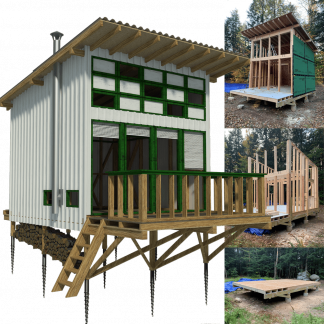
If you’ve ever thought about expanding your investment portfolio, real estate has probably been at the top of your list. Most people start with residential properties because they’re familiar and easy to grasp. You buy a house, rent it out, and build equity over time. But once you’ve mastered that, there’s a bigger world of opportunity waiting for you: commercial real estate.
Commercial properties offer a different kind of potential, steady income streams, long-term tenants, and higher overall returns. These investments aren’t just for massive corporations or seasoned investors; they’re for anyone ready to take a more strategic approach to property ownership. Unlike residential properties, commercial real estate focuses on generating income through business operations rather than personal use.
However, venturing into this market requires a shift in how you think about real estate. It’s less about the emotional aspect of owning property and more about making smart financial and legal decisions that align with your long-term goals. Before diving in, it’s essential to understand how commercial real estate works, what makes it different from residential investments, and how to navigate the process from start to finish.
Understanding the Basics of Commercial Real Estate
When you hear “commercial real estate,” you might picture office buildings, retail stores, or warehouses, but it’s much broader than that. Commercial properties include any real estate used for business or income generation, such as apartment complexes, restaurants, or mixed-use spaces that combine retail and residential units.
The approach to investing in commercial real estate is more analytical than emotional. Instead of focusing on how comfortable or stylish a property is, your attention turns to factors like location, tenant stability, market demand, and cash flow potential. These are what determine the long-term success of a commercial investment.
If you’re new to this area, understanding the process of buying commercial property is the key to making informed decisions. This process involves several important steps: evaluating market conditions, reviewing zoning laws, securing the right financing, conducting inspections, and negotiating lease terms. Working with professionals who specialize in commercial real estate can help you navigate these complexities confidently. They can guide you through legal requirements, financial considerations, and due diligence, ensuring you protect your investment from unnecessary risks.
Ultimately, buying commercial property is about creating a business plan, not just a purchase. You’re not simply acquiring a space. You’re building an income-producing asset that can support long-term financial growth.
Why Investors Are Turning Toward Commercial Real Estate
In recent years, more investors have started shifting their focus from residential homes to commercial spaces, and for good reason. Commercial properties often offer longer leases, more predictable income, and the potential for higher returns. For example, an office tenant might sign a lease for five or ten years, ensuring steady revenue without frequent tenant changes.
Another benefit is diversification. Real estate markets can fluctuate, but commercial properties often follow different cycles than residential ones. By adding commercial investments to your portfolio, you can balance your income streams and reduce exposure to market volatility.
Moreover, commercial spaces are evolving. With new business trends, like coworking environments, e-commerce warehouses, and mixed-use developments, investors have more options than ever before. These changes create opportunities for you to invest in properties that align with future growth patterns.
Exploring Different Types of Commercial Real Estate
Commercial real estate comes in many forms, and understanding these categories can help you choose what best fits your goals and risk tolerance.
Office Spaces: These properties typically attract long-term tenants and steady income, especially in areas with strong business activity. However, the success of an office investment can depend heavily on local employment trends and economic health.
Retail Properties: From shopping centers to small storefronts, retail spaces rely on visibility and consumer traffic. While they can generate impressive profits, they’re also sensitive to economic downturns and shifts in consumer habits.
Industrial Properties: Warehouses, distribution centers, and manufacturing facilities are becoming increasingly valuable thanks to online shopping and logistics growth. They often have lower maintenance costs and longer-term tenants.
Multifamily Properties: Apartment complexes are technically considered commercial if they have five or more units. These offer consistent rental income and are often seen as a bridge between residential and commercial investments.
Choosing the right type depends on your budget, goals, and willingness to manage the property. Some investors prefer hands-on involvement, while others rely on property managers for day-to-day operations.
What to Consider Before You Invest
Before committing to a commercial investment, take time to analyze the market and understand the potential challenges. Start with the basics: research the area’s growth potential, evaluate tenant demand, and study zoning regulations that may affect property use.
Financing is another critical factor. Commercial loans often have higher interest rates and shorter terms than residential ones, so understanding the numbers is essential. Work closely with lenders who have experience in this area to get the best deal possible.
Due diligence is non-negotiable. This means thoroughly inspecting the property, reviewing existing leases, and confirming that there are no legal or environmental issues. You’ll also want to assess how much capital you’ll need upfront and how quickly you can start generating returns.
By preparing thoroughly and surrounding yourself with knowledgeable advisors, you can minimize risks and make confident, informed decisions.
Managing and Maximizing Your Investment
Once you own a commercial property, the work doesn’t stop there. Successful investors know that effective management is what drives long-term profitability. Maintaining the property, keeping reliable tenants, and monitoring cash flow all play critical roles in sustaining value.
Building strong relationships with tenants can go a long way toward ensuring stable income. Businesses value responsive landlords who maintain properties well and address issues promptly. In turn, satisfied tenants are more likely to renew leases and recommend your space to others. This is just as important for Vancouver rental homes, where good tenant relationships support steady long-term income.
You can also boost profitability by investing in improvements that enhance the property’s appeal, such as modern lighting, energy-efficient systems, or updated interiors. These upgrades not only attract new tenants but also justify higher rental rates.
If you prefer a hands-off approach, consider hiring a professional property management firm. They can handle tenant communications, maintenance schedules, and financial reporting, freeing up your time while keeping your investment running smoothly.
Like any investment, commercial real estate comes with its share of risks. Vacancies can last longer than in residential properties, and market conditions may affect tenant retention. Upfront costs, including down payments and maintenance, are typically higher as well.
However, the potential rewards often outweigh these challenges. Commercial properties can provide stable cash flow, long-term appreciation, and tax advantages. The key is to approach the investment with a clear strategy, know your financial limits, understand your market, and plan for contingencies.
Over time, a well-managed commercial property can become a cornerstone of your portfolio, offering consistent returns that outperform other asset types.








